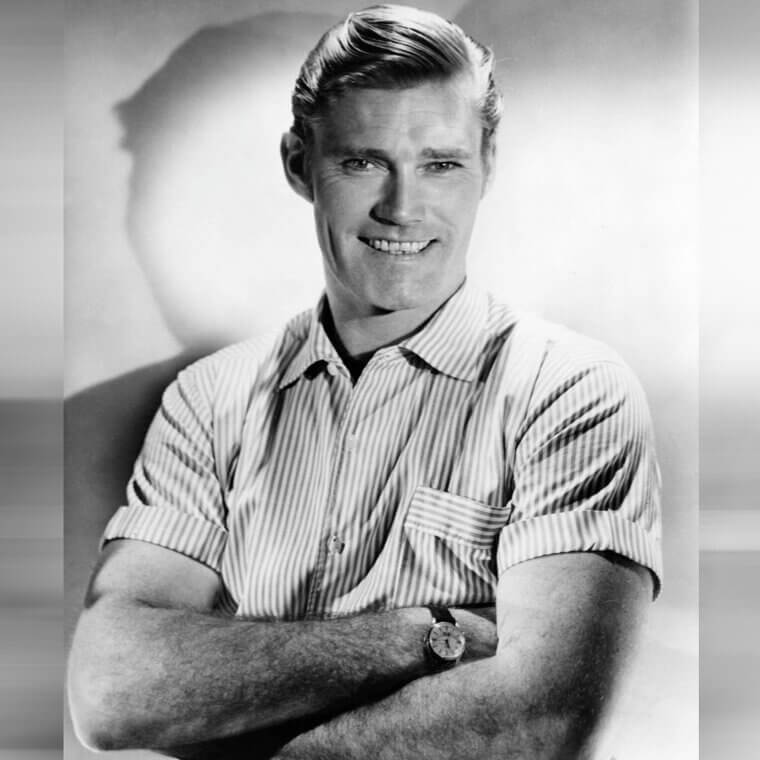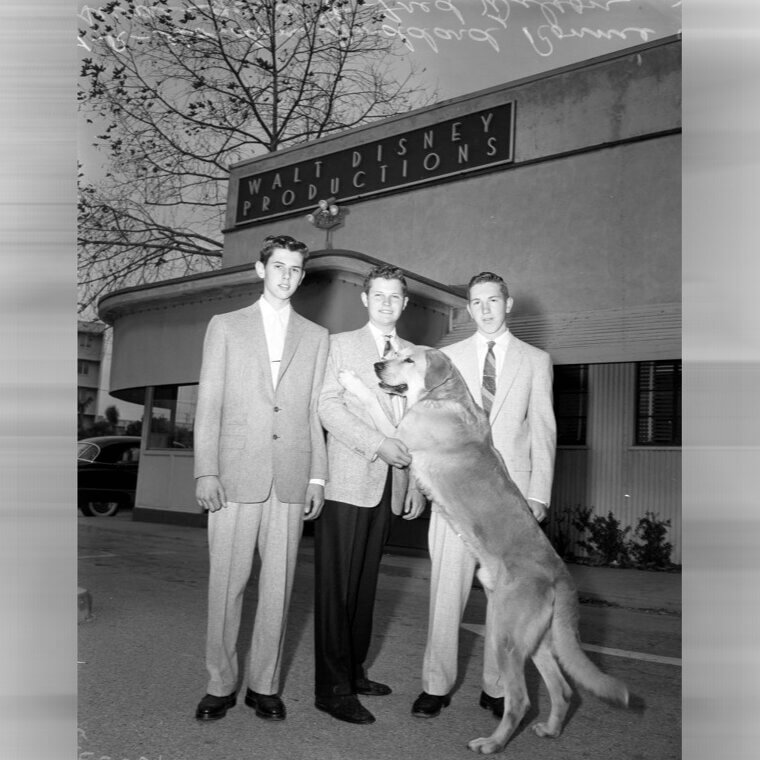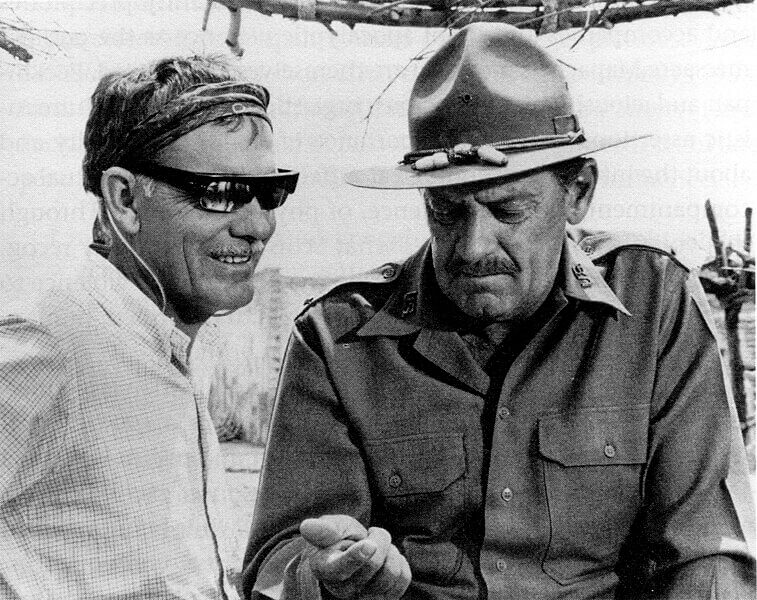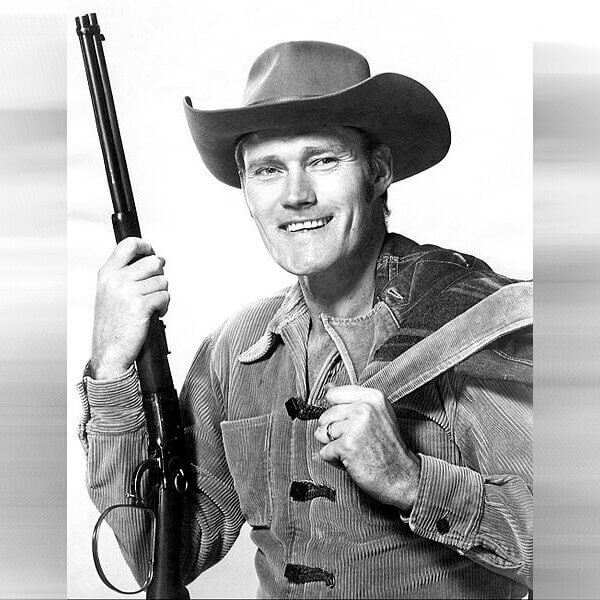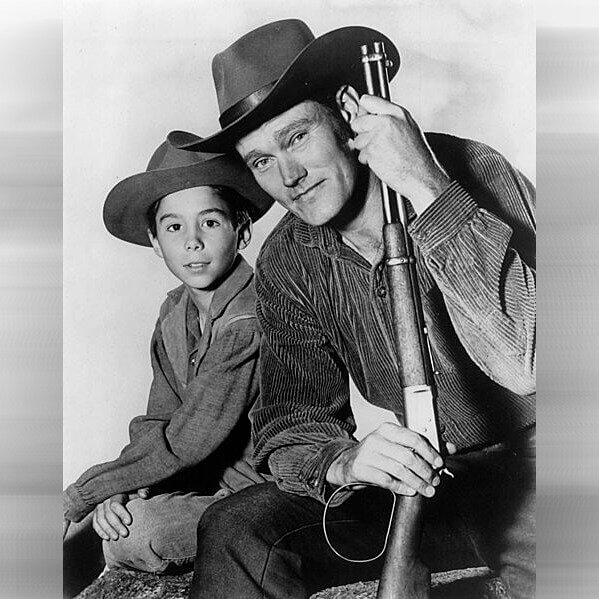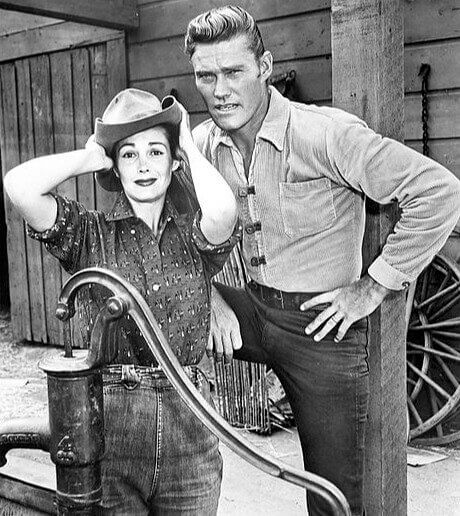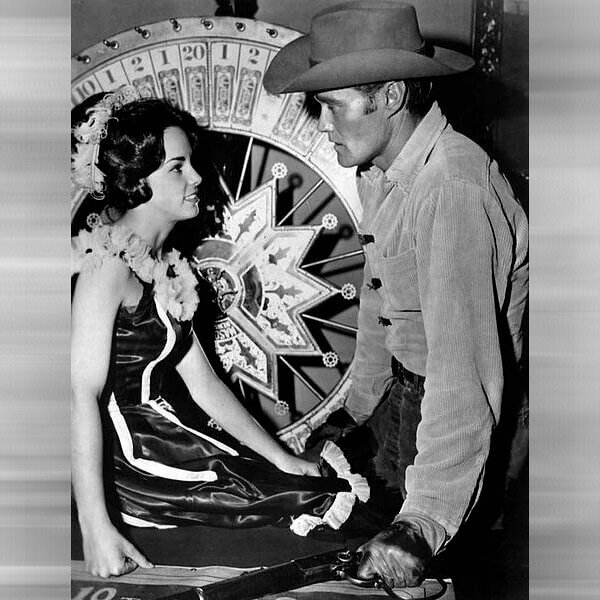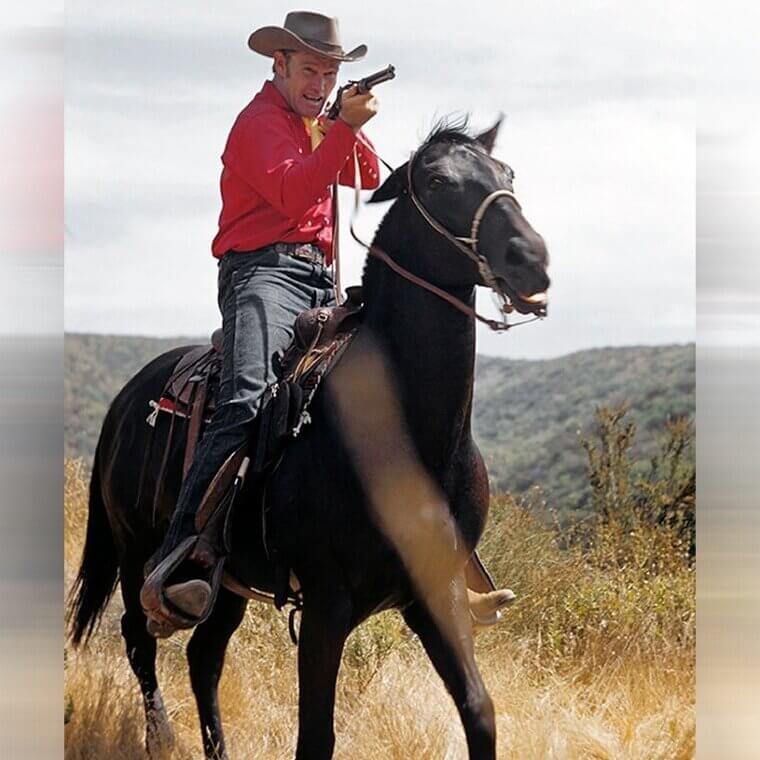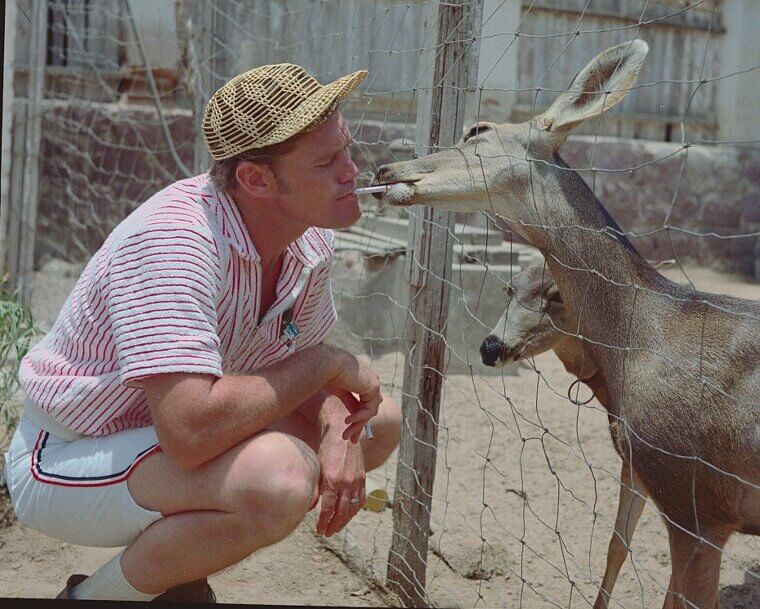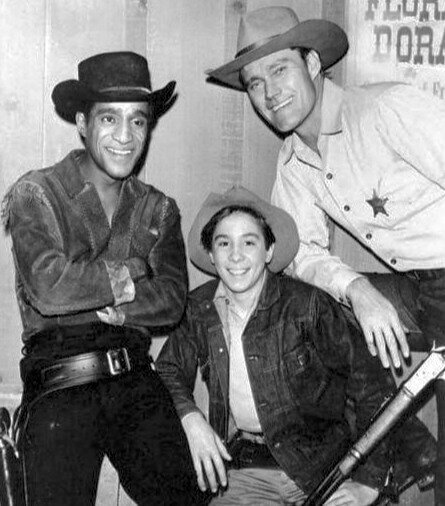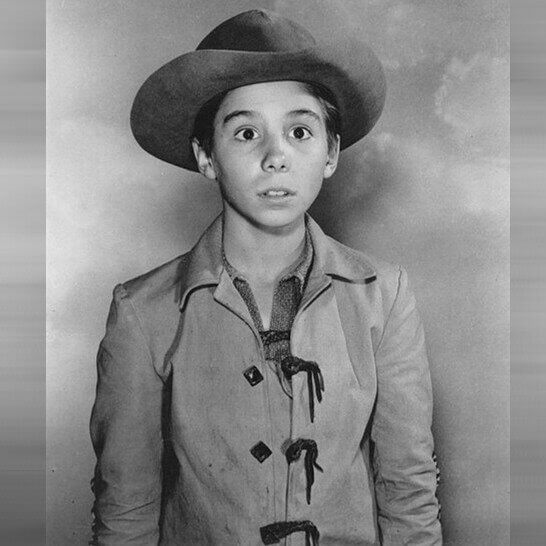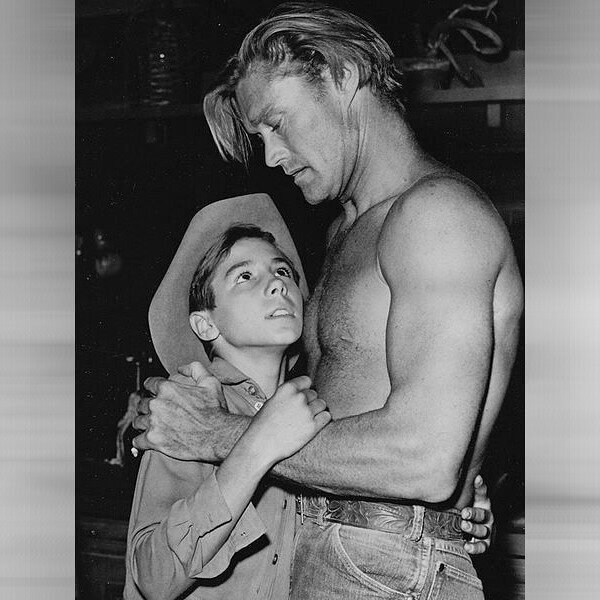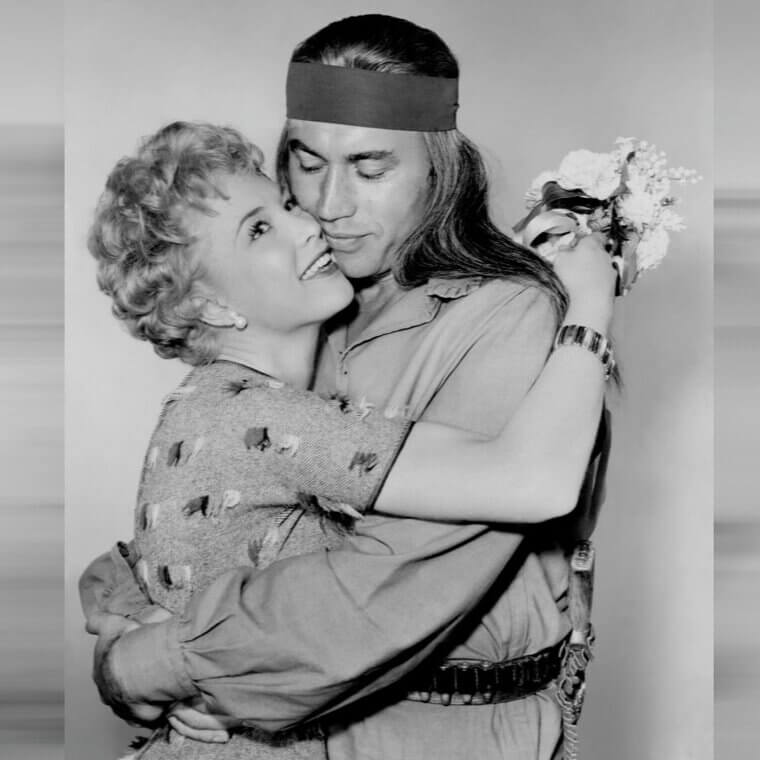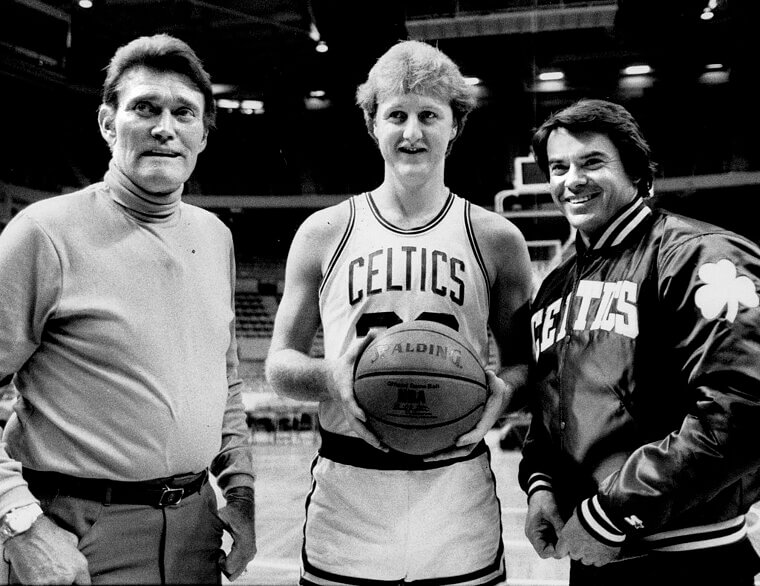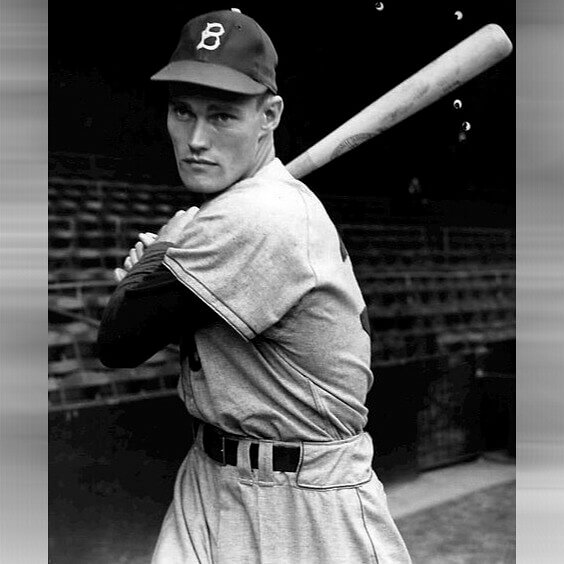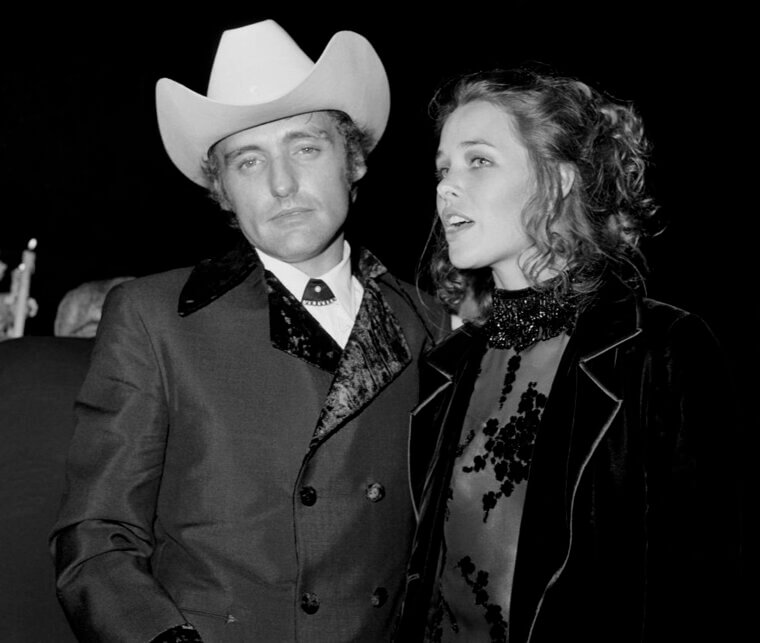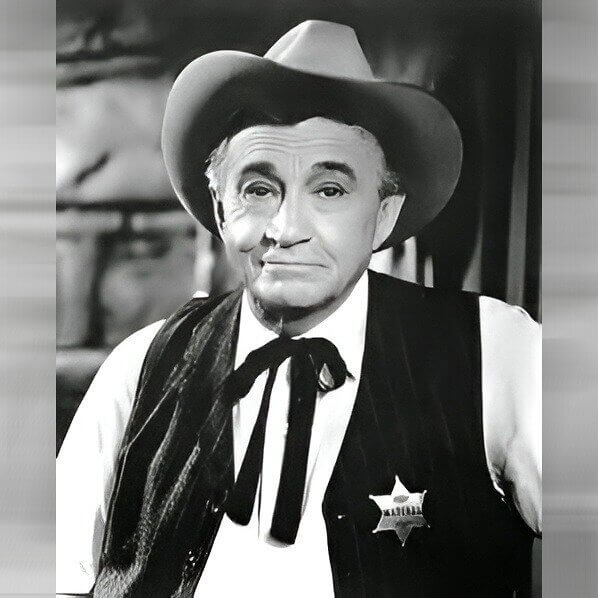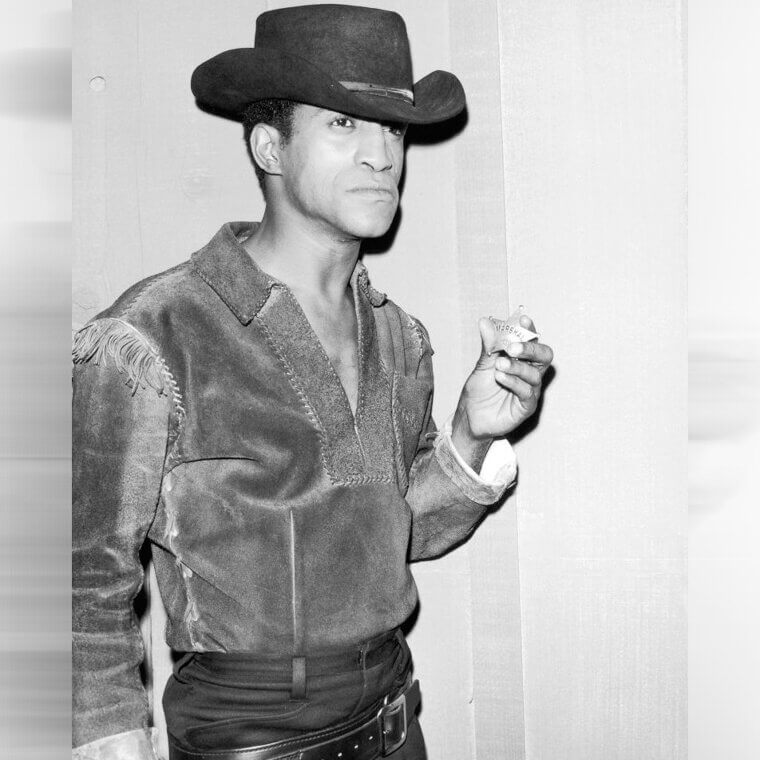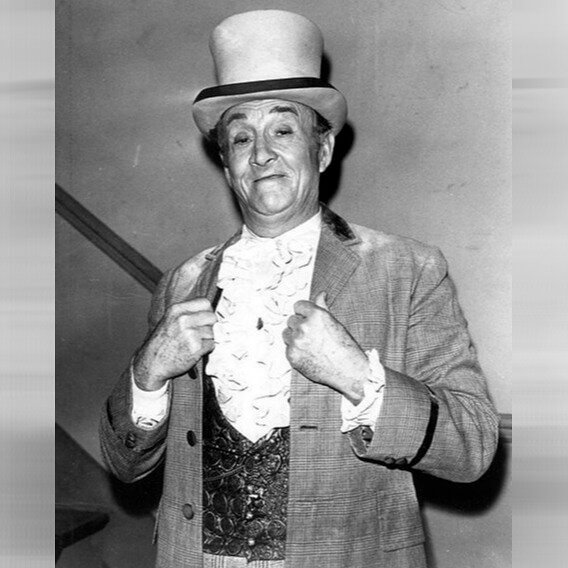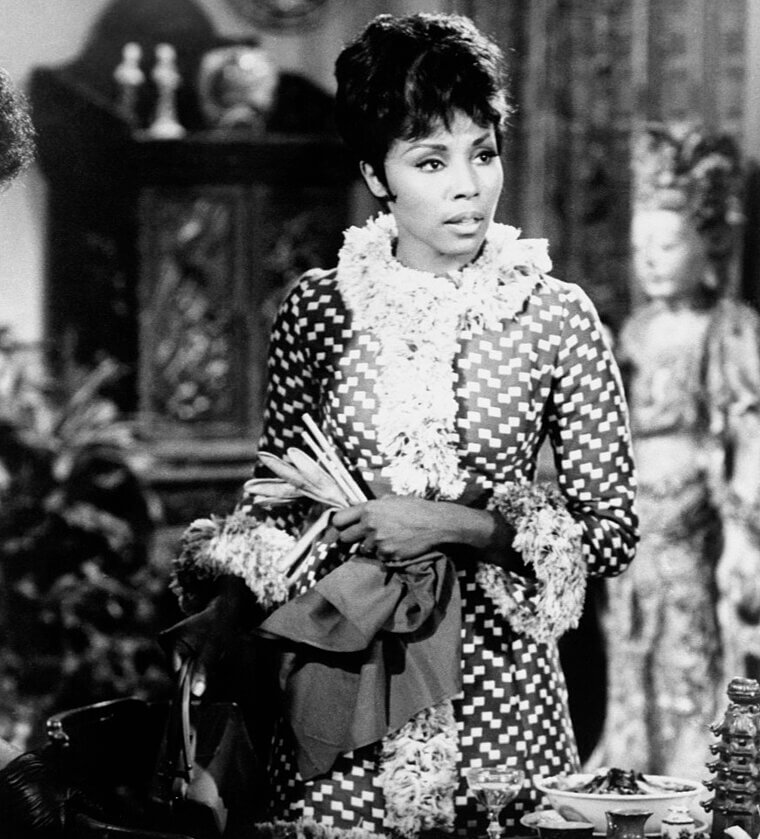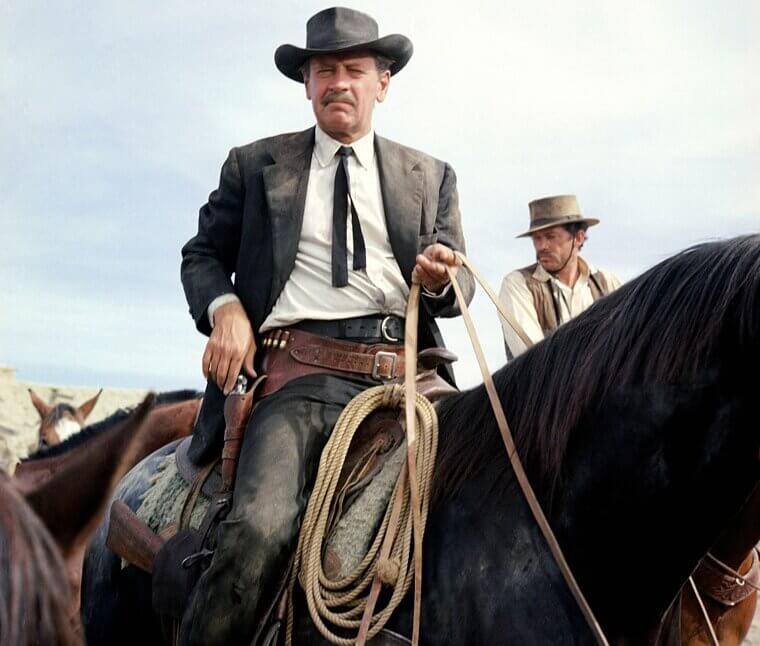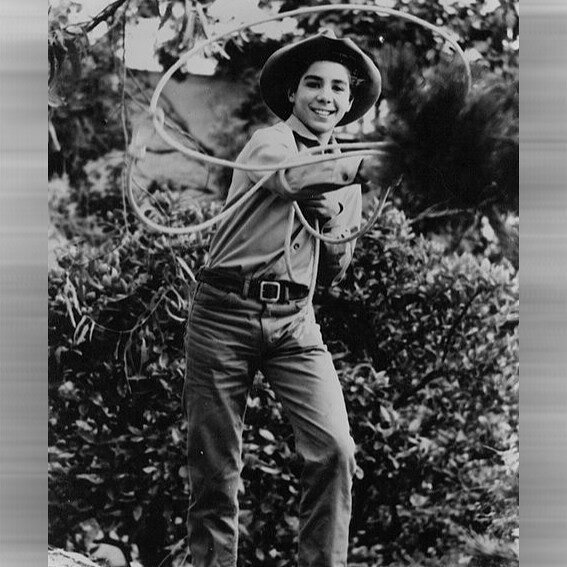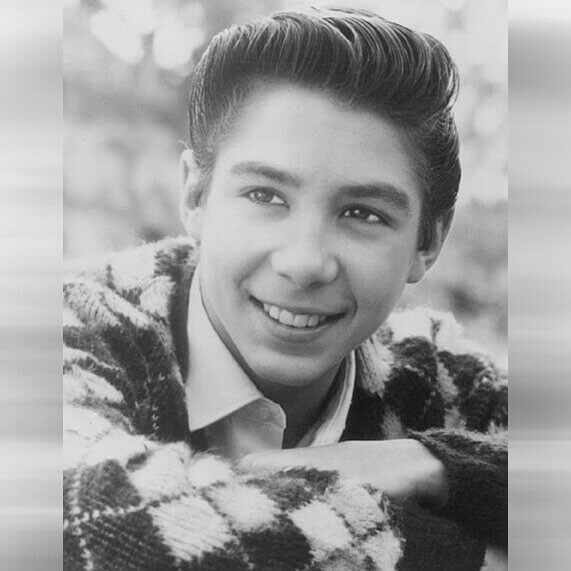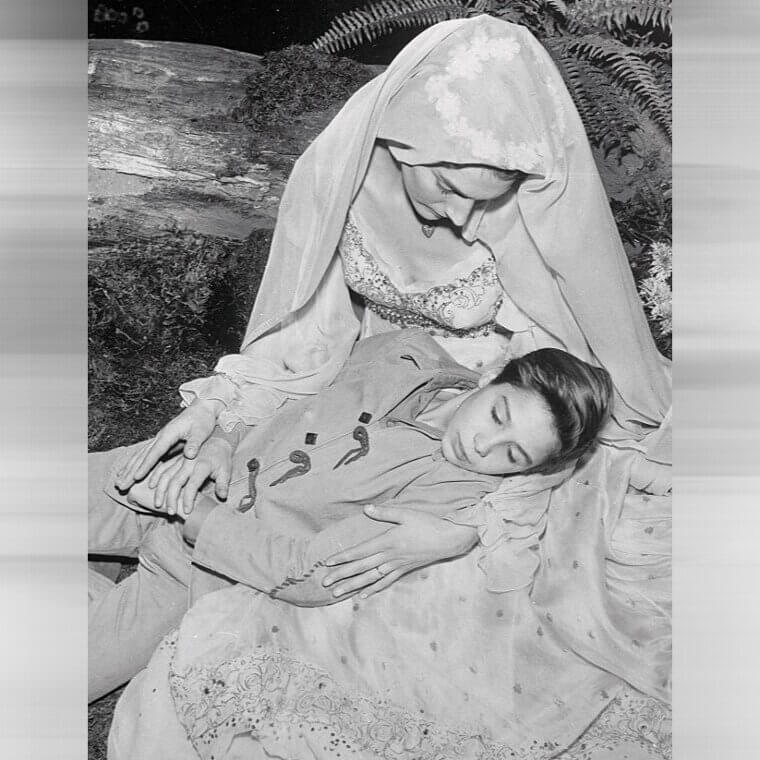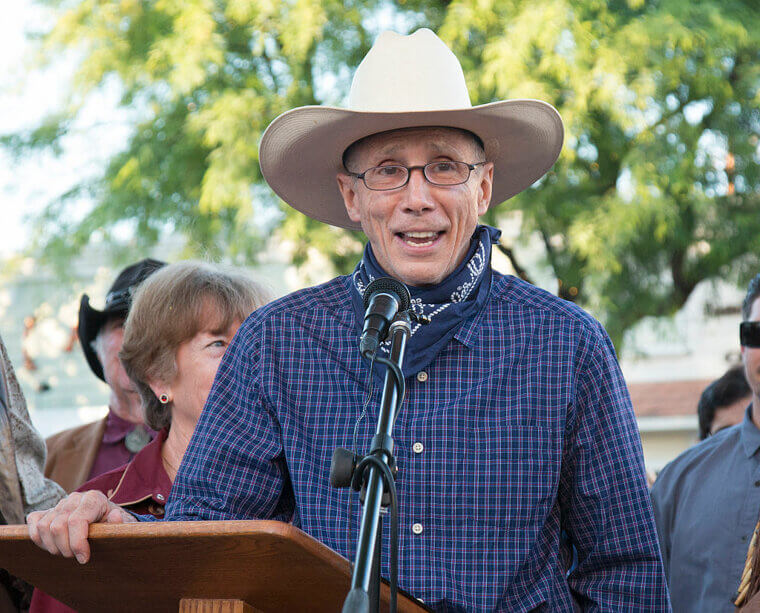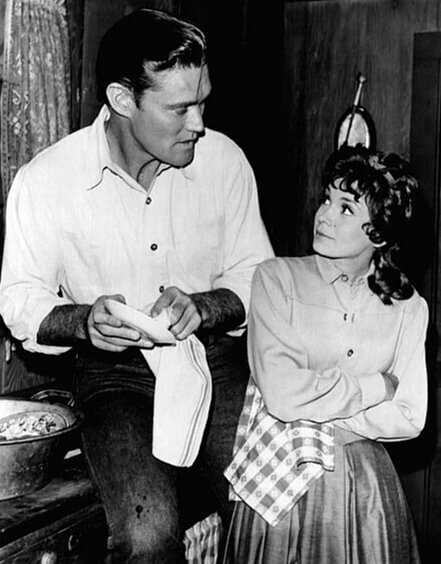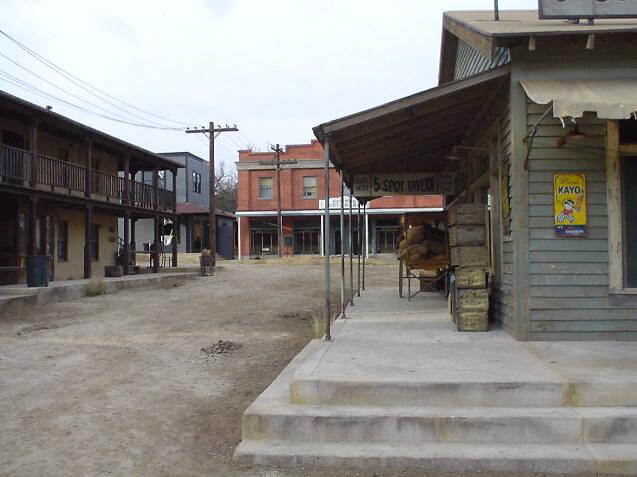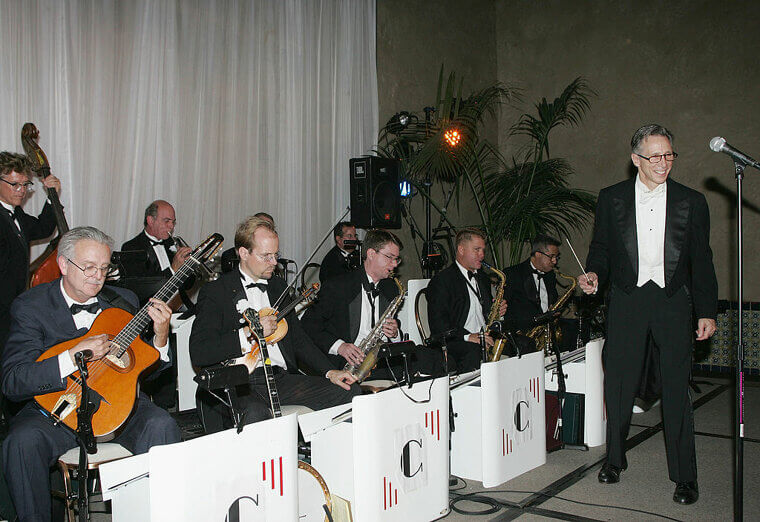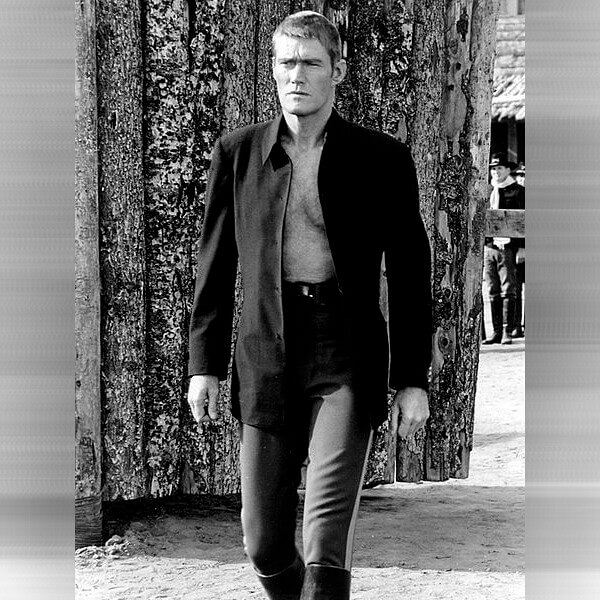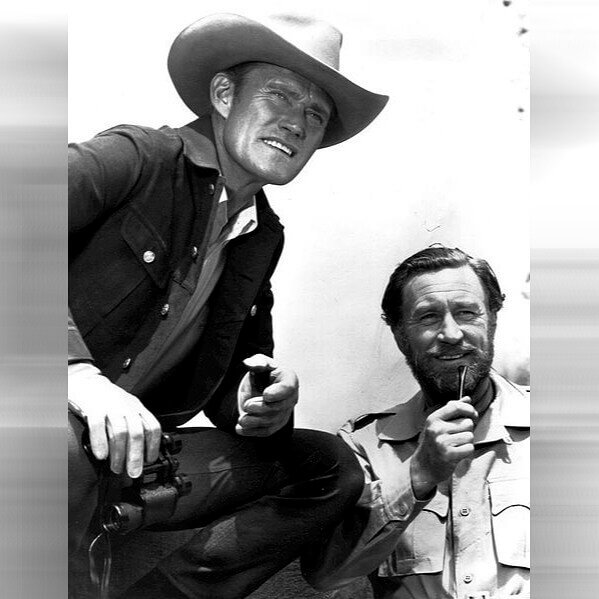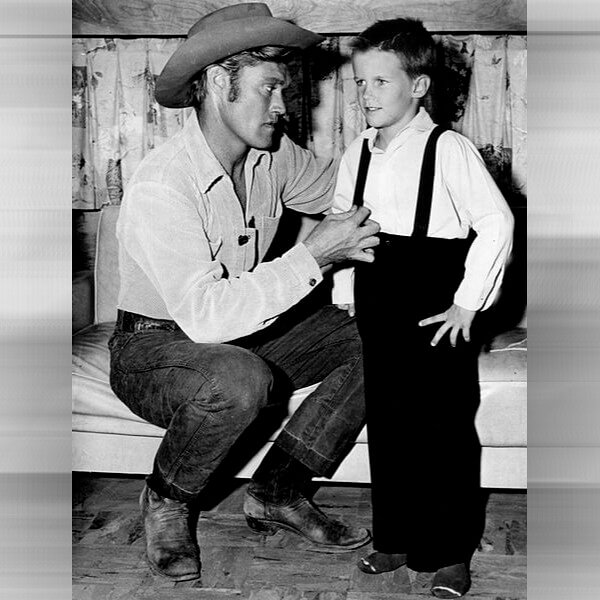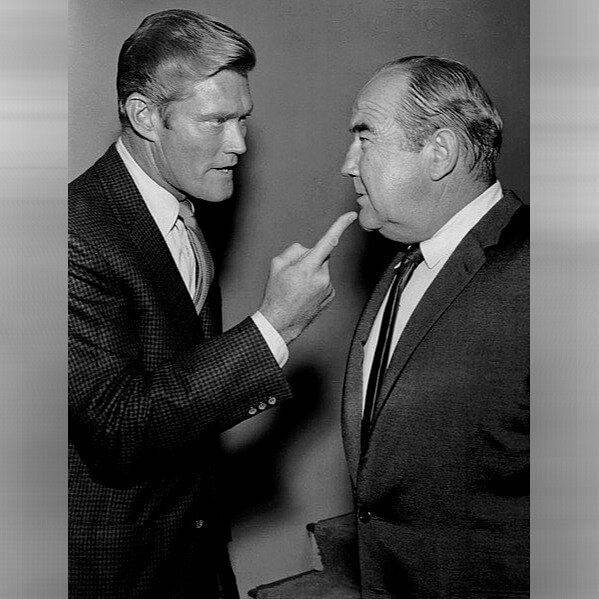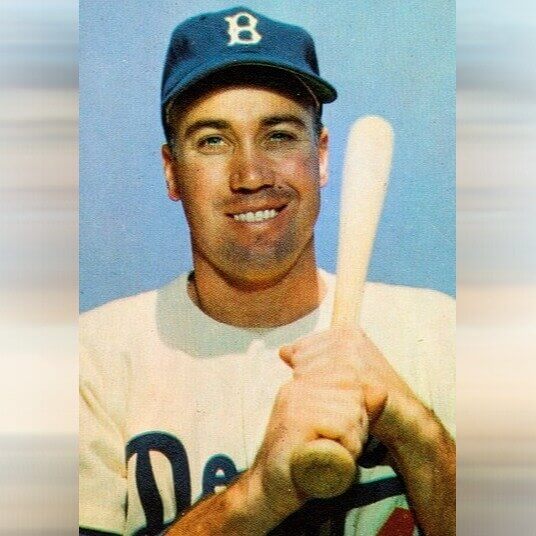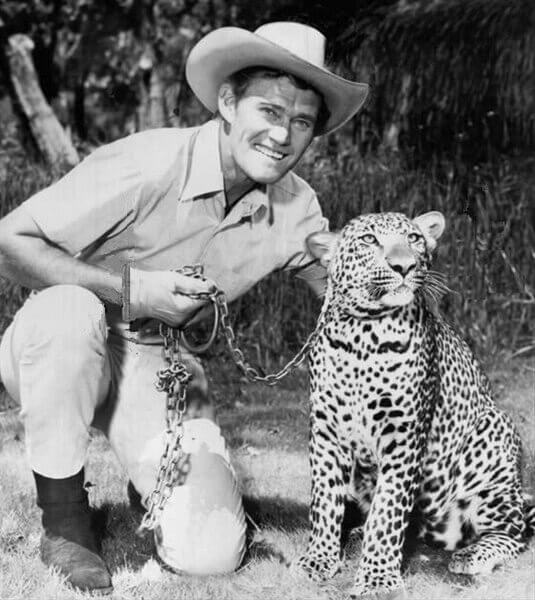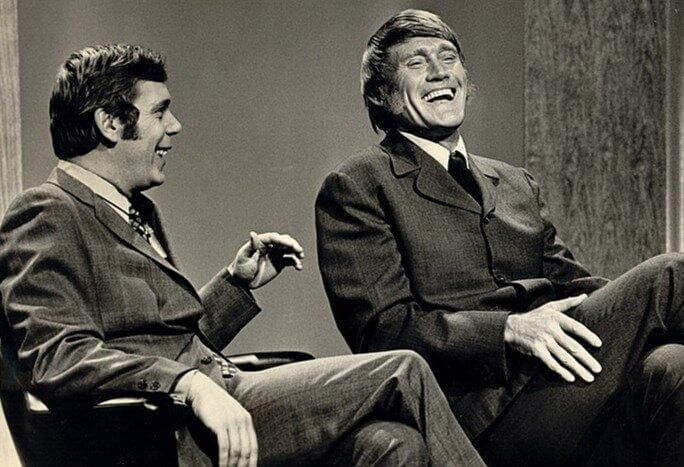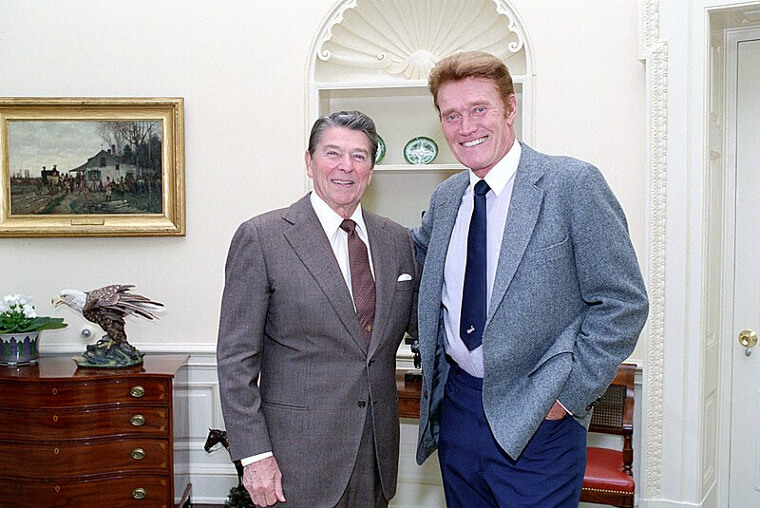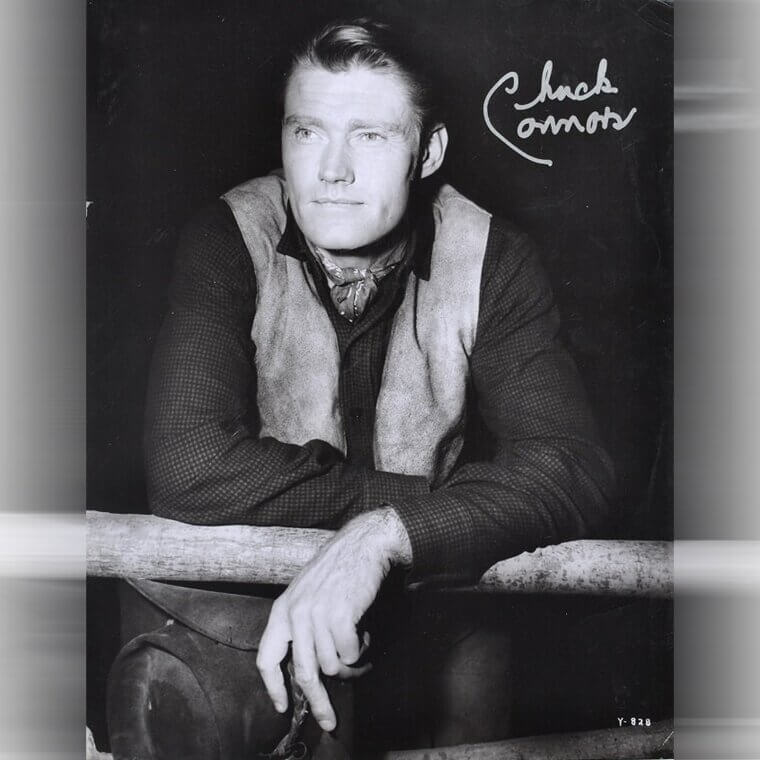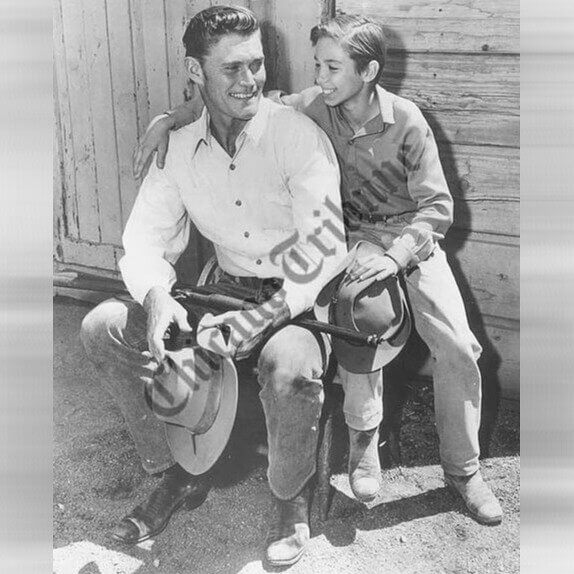The Role of Lucas McCain Almost Went to Another Actor
When you think of The Rifleman, you immediately think of Chuck Connors. Although the show had an impressive storyline and production team, Chuck was the man who brought fans back week after week. It seemed as though he was made for the role of Lucas McCain, and his place on the show helped it become the smash hit that it was. However, the role of Lucas McCain almost went to another actor. But why?
Well, the production team offered Chuck a lower salary than he was willing to accept. Because of this, they had to consider the likes of James Whitmore and John Anderson instead - but not for long.
The Team Eventually Upped Their Price to Keep Him
Although the producers tried to convince Chuck to come down to their salary expectations, he wouldn't budge and held his own. And while the team knew that they should put all of their eggs into the other candidates instead, they just couldn't stop thinking about Chuck. They had been big fans of him since the 1957 Disney movie Old Yeller and knew that he'd make the perfect Lucas McCain if they could just get him onboard.
In the end, it was child actors Tommy Kirk and Kevin Corcoran who sealed the deal for Chuck. They wanted to work alongside Connors, too, so the team had no option but to raise their offer.
The Show Almost Didn't Exist
We have David Samuel Peckinpah to thank for bringing The Rifleman to life. But what many people don't realize is that this Western-loving film director and screenwriter sold many of his scripts to other showrunners. In fact, he sold scripts to the likes of Klondike, Broken Arrow, and Gunsmoke. Many of these scripts were then used, but others weren't - and The Rifleman was actually created when Gunsmoke executives passed on his script for the pilot.
Although the Gunsmoke team didn't want the script, Sam knew that there was something in it. So, he sat down with it some more and developed it into The Rifleman.
The Show Isn't as Accurate as History Buffs Would Like
Although The Rifleman came onto our screens in the 1950s, the show was actually set in the 1870s and 1880s—and this made a lot of history buffs happy. They were over the moon to see a proper Western on their screens and loved all of the historical touches that came with it. However, some inaccuracies also occurred. One of these inaccuracies focused on McCain's famous Winchester rifle, which famously spun around in the opening credits.
Although the rifle made great television, it wasn't exactly accurate, as that particular Winchester rifle with a large ring lever wasn't made until 1892 - which was many years after the show was set.
At First, It Wasn't as Emotional as They'd Hoped
Although the changes that Sam Peckinpah made to his script worked in his favor, producer Arnold Laven still wasn't 100% happy with the concept and the idea of the show. He loved the character of Lucas McCain and knew that he would go down well with the audience at home. However, he also thought that something was missing. He wanted Lucas to be the most important character on TV - so, he needed a softer side to him.
In the end, the team decided to make Lucas a widower and a single dad to pull at the heartstrings of those watching from behind the screens. This decision ultimately made the show a hit.
The Producers Also Wanted to Add More Romance
As the show began airing, it was clear to see that the gentle yet brave character of Lucas McCain went down extremely well. And while the single-dad angle seemed to have women falling to their knees and the Western action catered for men who wanted to see gunfights on their screens, the producer also wanted to add some romance into the mix. So, they began to introduce some love interests into the mix.
Actresses such as Joan Taylor, Katherine Bard, and Patricia Barry all made the cut for the show, and they all had their fans. But there's no doubt that Taylor had a special place in The Rifleman fans' hearts.
Lucas's Love Interests Were Well Thought Out
Lucas is undoubtedly the main character in The Rifleman. But in an effort to expand the show's horizons and offer new storylines, many of his lady friends were also introduced - from short-term flings to much more meaningful relationships. But these women weren't just written into the show for the fun of it. These women were well thought out to make sense with the show, and this was especially the case for Milly Scott.
The producers wanted Milly to be a feminine woman, but they also wanted her to be incredibly strong and independent. The end result was a character that both Lucas and the rest of the world fell in love with.
Chuck Was Just as Impressive as Lucas
As with any Western, The Rifleman focused on gunslinging and shooting. And while many assumed that Lucas McCain's 99.99% accuracy in the show was the work of special effects or a proper cowboy waiting in the wings, it might surprise you to learn that it was all Chuck Connors's handiwork. In fact, his impressive shooting skills were linked to his impressive height mixed with his talent as both a professional basketball and baseball player.
Not only that, but Chuck was ambidextrous - which meant that he could toss the gun from one hand to the other and still hit his targets with impressive accuracy.
Chuck's Eventual Cause of Death Wasn't Given Screen Time
During the 1950s, it wasn't uncommon to see smoking on television. Almost every show had at least one character who smoked, and it wasn't seen as the negative trait that it is today - especially as Chuck Connors was a heavy smoker himself. In fact, the lead actor in The Rifleman had such a bad habit that he would smoke up to 60 each day while he was filming the show.
Despite the fact that this smoking habit eventually led to a lung cancer diagnosis, the producers of The Rifleman chose not to show Lucas McCain smoking on the show. It's not known why, though.
There Was a Very Famous Prop on Set
Things are often swapped and shared in the world of Hollywood. Sets that are used for one TV show are repurposed for another, costumes and accessories are borrowed from one movie to the next, and props are often handed down from production to production. This was the case in The Rifleman, and producer Arnold Laven confirmed that the gun that Connors used in the show was the same one used in the iconic Western movie Stagecoach.
The fact that the rifle used in the legendary opening credits of The Rifleman was also used in another major Western production has gone down extremely well with fans of the genre.
The Abrupt Ending Didn't Go Down Well With Fans
In 1963, it was announced that The Rifleman was no more. The incredible show had already given us five hugely popular seasons, and most fans were itching to see more of Lucas and Mark McCain on their screens. Because of this, the abrupt ending of the show didn't go down well with fans, and everyone wanted to know why it had been canceled. And one theory stated that Johnny Crawford's age led to the cancelation of the show.
After all, the older he got, the more the dynamic between between him and his on-screen dad started to change. Another theory is that the show simply ran its natural course.
Lucas Mccain Became the First of His Kind
Many people were stuck in their old-fashioned ways during the 1950s and 1960s, but it seemed as though The Rifleman wanted to take a stand against some of these beliefs - especially when it came to family values and set-ups. In fact, Lucas McCain became the first television character in history to lead a show as a widowed single parent. Before him, there had only really been space for nuclear families.
Although it was a risk to write Lucas as a single father, it was this family dynamic that made the show so popular as it showcased the true, heartfelt bond between a father and his son.
One Character Got His Own Show
While Chuck Connors was the lead in The Rifleman, he shared the screen with countless other actors over the years. One of them was Michael Ansara, who starred as Lucas McCain's plainsman in the show. And despite the fact that he only appeared in two episodes, he made such an impact that he was given his very own spin-off by the name of Law of the Plainsman. This was a huge step forward for the world of television.
This show was one of the first in television's history to offer a lead role for a Native American character, and fans were over the moon. However, it was sadly canceled after just one season.
Before Acting, Connors Played for the Celtics
As fans watched Chuck Connors on their screen in The Rifleman, it was clear to see that he was a talented actor. But while you might assume that he had always dreamt of being on television, that wasn't the case at all. Chuck never had any intentions of being an actor, and had instead always wanted to be a sports star. In fact, he was once a professional basketball player.
Before hitting Hollywood, Connors hit three-pointers as part of the Boston Celtics team. He even became the first pro player in history to break the backboard during a match. But his sporting talent didn't end there.
Then, He Switched to Baseball
After an impressive few years as a professional basketball player, it seemed as though Chuck Connors had a change of heart - and a change of sporting prowess. In 1951, he became a professional baseball player with the Chicago Cubs and proved to everyone that he was a multi-talented sportsman with an impressive eye. His ambidextrous skill also made him a hot commodity on whatever sports team he became a part of.
With all of this in mind, his eventual switch up into riding horses and gunslinging probably makes sense. But not many people can say they'd done as much as this guy.
The Show Catapulted a Big Star: The Iconic Dennis Hopper
Although we all know that The Rifleman shot a fair few big names into the Hollywood stratosphere and made them even more famous, do you remember that Dennis Hopper once appeared on the show? Yes, the man known for his iconic role in Easy Rider once starred alongside Chucks Connors in the pilot episode of The Rifleman, and then came back for a second role - as a different character - later down the line.
Of course, that was before he became one of the most famous men in all of Hollywood. But it's nice to know that everyone has to start somewhere before they make the big leagues.
Many Actors Went on to Bigger and Better Things, Like Paul Fix and Star Trek
As Hollywood was such a small place back in the 1950s and 1960s, The Rifleman casting team also had to deal with the fact that many of their actors would quit the show to work on others instead. This was actually the case for Paul Fix, who took the chance to move on to bigger and better (and, admittedly very different from the typical Westerns) things when he was cast in Star Trek.
This was a common occurrence on the set of The Rifleman, as budding actors were eager to expand their horizons on shows that broke the norm and offered them something new.
Celebrity Cameos - Like Rat Pack Member Sammy David Jr. - Took Many Viewers by Surprise
In an effort to combat the competition and the high actor turnover, the producers of The Rifleman decided to add a few cameos into the mix - and fans went wild whenever they saw a familiar face on their television screens. One of the most popular celebrity cameos came in the form of Rat Pack member Sammy Davis Jr. who appeared in two episodes overall - and as two different characters.
On the first occasion, he appeared as the terrible and mean Tip Corey, a former member of the Buffalo Bill Wild West Show. Then, he became the extremely dapper cowboy Wade Randall
They Had to Use the Same Actors for Multiple Roles
The Rifleman will go down in history as one of the best Western shows to come on our screens. And while many budding actors dream of working on a show like that one, it was incredibly difficult to find male actors who fit the bill during the casting of The Rifleman. With a smaller pool of actors to choose from and numerous Western shows all vying for the same ones, they had no choice but to repurpose them.
Because of this, certain actors such as Paul Fix would be called in when they needed smaller roles - like a doctor or a bartender - to be covered during filming.
The Series Inspired Other Shows and Completely Changed American TV Culture
When the world learned that The Rifleman had swerved away from the traditional family unit to showcase a single, widowed father, they were ultimately a little confused. It was unlike any other TV show before, but it was ultimately what made it so special - and the TV world knew it. As a result, the idea and concept behind this family unit inspired many other TV shows around that same time.
In the 1950s, The Bachelor Father once again showcased a single dad, and the show Julia in the 1960s offered the same but from the mother's perspective. So, it had a big impact.
The Show Was Inspired by Real-Life Events
While many TV shows are made up from a figment of someone's imagination, others are made from real-life experiences - and The Rifleman was the latter. The premise and the characters of the show were created by Sam Peckinpah, who grew up on a ranch himself. He then used his own experiences of working hard on the ranch to the toughness of the men around him to create the overall concept and storylines.
Sadly, Sam decided to leave the show after one season and passed the baton to other scriptwriters. But the overall theme and vibe of the show continued along the same lines even after he left.
The Rifleman Wasn't Johnny Crawford's First Rodeo
The Rifleman wouldn't have been the same without young child star Johnny Crawford. His role as Lucas McCain added the emotion and heartfelt love that was often missing in Western shows, and fans seemed to love him. But as Johnny was just 12 years old when he joined the cast, you might assume that this was his first big acting role. However, that wasn't the case, as he'd started acting much earlier.
In fact, Johnny was just 9 years old when he was first cast as one of The Walt Disney Company's original Mouseketeers. And while he only held this role for a year, it allowed him to catch the acting bug.
Johnny Went on to a Very Different Career
Johnny Crawford appeared in every single season of The Rifleman, but as rumors that his age influenced the cancelation of the show, it seems as though he felt the pressure to remain in the limelight. So, as he got older, he decided to branch out and spread his wings into a very different career as a singer. As a teenage heartthrob, he already had the fans as an actor, and they fell in love with his singing, too.
Johnny released various singles in the 1960s, and many assumed that he would become one of the biggest singers of the day. But he always tried to make his way back in front of the screen when he could.
The Show Wanted to Highlight the Horrors of Smallpox
Seeing a widowed man lead a Western show was a new experience for many people, but there's a reason why this struck a chord with so many viewers at home - and that's because Lucas McCain was widowed as a result of smallpox. This disease not only ran rampant during the years in which the show was set, but it was also still around during the 1950s and 1960s when the show was released.
As a result, many people at home could relate to the pain and heartache that this disease caused. And seeing a show bring this to light tugged at the heartstrings of many watching from behind the screen.
Later, Johnny Even Served in the U. S. Army
After making a name for himself as an actor and singer, Johnny Crawford's life took him in a completely different direction in 1965. As the Vietnam raged on across the pond, Johnny made the decision to serve his country as part of the U.S. Army. And while he primarily served as an active soldier, his experience as an actor certainly helped him - and the rest of the military - out.
In fact, Johnny helped the army create and direct their training videos. He also wrote the scripts for these training videos and acted in them himself - so, he just couldn't seem to get away from the cameras.
The Show Had a Much Deeper Message
One of the many things that allowed The Rifleman to stand out amongst countless other Western shows at the time was the fact that it was so much more than gunslinging, cowboys, and saloon fights. The creator and producer of The Rifleman wanted the show to have an overarching message - and that message was all about forgiveness and second chances. So, they aimed to incorporate that into every episode.
It was these storylines and this message that made The Rifleman so incredibly popular. And it was these things that also made fans upset when it came off the air so suddenly.
The Show Was Filmed in Multiple Locations
Although many Westerns of the same era were filmed on one ranch throughout the whole process, filming of The Rifleman went a little differently. Although the show was set in New Mexico, a large majority of the show was filmed on set in Los Angeles. This made it easier for all of the actors and the production team to work their magic, and proved to be a much more efficient process.
However, they did make their way out into the desert occasionally. The team would often film on famous ranches such as the Corriganville Movie Ranch and even the Paramount Ranch in the Santa Monica Mountains, which is open to the public.
Johnny Went on to Start His Own Orchestra
We already know that Johnny Crawford went on to have his own music career, and the music he released went on to sell thousands of copies. And while he eventually went back into the acting world, it seemed as though he couldn't leave music behind. So, in 1992, he formed his own orchestra called JCO (Johnny Crawford Orchestra). This vintage dance orchestra allowed him to use his musical creativity once again.
The orchestra also performed for many years in California - specifically around the Beverly Hills area. So, it kept him busy as Hollywood welcomed more and more actors into the business.
At First, the Rifleman Was an Instant Hit
The Rifleman was released when Western TV shows were all the rage. Those at home loved seeing the gunslinging on their screens, and they loved the drama that came with the cowboys and their daily antics. And while you'd assume that being among such competition would serve against the show, it had the opposite effect. At first, The Rifleman was an instant hit, and the first season became the fourth-most watched show in the U.S.
In fact, the first season brought in a whopping 14.6 million viewers. That all started to change during its third and fourth seasons, though, as the hype around the show began to dwindle.
The Show Featured a Famous Stuntman
Although many of the main characters chose to do their own stunts, there were other actors - particularly the minor characters and background cowboys - who weren't as confident in the saddle. As a result, The Rifleman had a stuntman on standby to help with anything they needed. This wasn't just any stuntman, though, as they had managed to bag Archie Butler, one of the most famous Western stuntmen of all time.
As a former rodeo rider and professional stuntman, Archie had a huge amount of experience under his belt and served on the show throughout most of its run. So, they were thankful for that.
The Father-Son Bond Wasn't as Strong Off-Screen
One of the things that fans loved most about The Rifleman was the endearing father-and-son bond between Lucas and Mark McCain. And while there's no doubt about the fact that they had a great bond off-screen, Johnny Crawford admitted that Chuck Connors was far from the fatherly figure everyone thought he was. In fact, he stated that he was incredibly different when the cameras stopped rolling, and was more of a bad influence than anything.
Apparently, Chuck would spend his days pranking the other actors on set and using curse words wherever he could. Johnny even said, 'He loved intimidating people. I got a kick out of him.'
Chuck Connors Was Known by His Stage Name
Whenever anyone talks about The Rifleman, they talk about Chuck Connors. But what most people don't realize is that Chuck Connors wasn't his real name. Instead, it was his stage name! The actor who went by this stage name was actually born Kevin Joseph Conners, but he didn't like his birth name. So, he dabbled with a few different nicknames during his childhood, including "Stretch" and "Lefty," but neither of them stuck.
It wasn't until he started playing baseball at school and regularly told his friends to "chuck" the ball to him that he settled on the name Chuck Connors. This stayed with him until his dying day, too.
The Show Featured Many Famous Sports Stars, Which Was a Rare Occurrence at the Time
Chuck Connors was a man of many talents. And thanks to his professional sporting career in two different disciplines, he also knew a lot of people - including many famous sports stars. As a result, he was able to convince them to appear on The Rifleman in small cameo roles, which made fans at home extremely happy. In fact, some of these big names included Duke Snider, Buddy Hackett, and Robert Vaughn.
While these sports stars wouldn't normally sign up for a cameo in a Western TV show, Chuck's power of persuasion made it impossible for them to ignore or turn down.
Chuck Was Worried He'd Get Stuck in Television
Only a select few actors get to work in both movies and television. Most get pigeon-holed into one lane or the other and find that they struggle to find success elsewhere - and Chuck Connors was worried that his time on The Rifleman would force him to stay in the television lane. Thankfully for him, that wasn't the case. Fans fell in love with his natural talent and chemistry on the screen, and wanted more from him.
So, he was given countless chances to stare in Hollywood movies - both before, during, and after his time on The Rifleman. As a result, he became one of the most famous actors of all time.
Chuck Remained a Television Icon, Too
While Chuck wanted to branch out and work in movies, he also didn't want to leave his roots behind. He was extremely grateful to The Rifleman for the success and attention it gave him, and he loved being able to work on smaller projects every now and then. In fact, one of his most famous roles was a small cameo in a 1955 episode of the Adventures of Superman television show.
For this role, he became the character of Sylvester J. Superman and it allowed the actor to show off his comedic side. Not many people can say they played a superhero, either.
Johnny Crawford Was Nominated for an Emmy
Child stars have been around for decades, but some are rarely given the credit they deserve. Many give up years of their childhood to work alongside adults on a movie or television set, skipping a normal childhood for on-set tutors and long working hours. This was largely the case for Johnny Crawford, but you'll be happy to know that he was almost give the credit that he deserved for his work on The Rifleman.
When he was just 13 years old, Johnny was nominated for an Emmy Award - and he came extremely close to winning. However, Dennis Weaver was the one who ultimately took home the award.
Chuck Credits Baseball for His Success
Even in this day and age, Chuck Connors is extremely famous. He's regarded as one of the most famous actors of the 1950s and 1960s, and he's credited for making The Rifleman the success that it was. And while there's no doubt about the fact that he had a natural talent for acting, he also credits his success, drive, and industry contacts to his time as a professional baseball player.
He once told reporters, 'I owe baseball all that I have and much of what I hope to have.' He even stated that being famous already made his entrance into the acting world much easier.
The Rifleman Collectibles Are Now Worth a Fortune
Do you have any The Rifleman merchandise sitting in the attic? If you're not sure, it's well worth taking a look to see if you have any of the books, posters, stationery, or DVDs lying around. That's because the makers of the show tried to keep the magic of The Rifleman alive even after it was canceled. So, they created a limited line of accessories and merch to keep people interested.
Today, this merchandise is worth a small fortune - especially if you have some of the last remaining products in circulation. After all, hardcore fans are willing to shell out for them.
Johnny Delivered Chuck's Eulogy
When the time came for the world to say goodbye to Chuck Connors, the people who loved him most knew that there was only one person to read his eulogy: his on-screen son, Johnny Crawford. Johnny was honored to do it, and made every attendee weep with his heartfelt words of admiration for Chuck's work and sadness over his death. He even ended the eulogy with the words, "He was just my hero."
Thankfully, modern technology means that old fans of The Rifleman can revisit the show for years to come, and new fans can experience the drama of the show for the first time. So, his legacy will live on.

